Chen Ping: The Ruthless Mastermind Behind the Han Empire – Betraying Han Xin and Annihilating the Lü Clan
In the late 3rd century BCE, ancient China plunged once again into chaos.
With the collapse of the Qin Empire, the continent entered a new age of warring states, where Liu Bang of Han and Xiang Yu of Chu fought for supremacy.
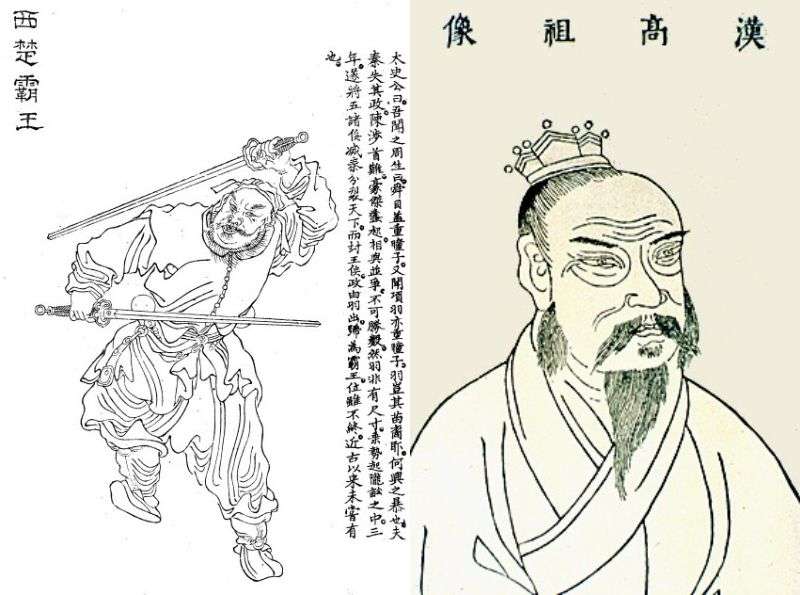
Xiang Yu and Liu Bang (Public domain)
Though Liu Bang had humble origins as a farmer, he succeeded in unifying the land. Around him gathered many talented and courageous individuals, forming the backbone of the new Han regime.
Among them were two men later hailed as master strategists: Zhang Liang and Chen Ping.
While Zhang Liang primarily contributed to high-level military planning, Chen Ping repeatedly saved Liu Bang with schemes so unorthodox that no one else could have imagined them.
Yet centuries later, during the Three Kingdoms period, Chen Ping was cited by the warlord Cao Cao in his famous “Notice to Seek Talent” as a morally corrupt figure—“a man who slept with his brother’s wife and accepted bribes.”
Brilliant yet morally dubious, Chen Ping was a man of duality.
Who was this cunning mastermind behind the Han Empire?
【The Man of Stratagems】
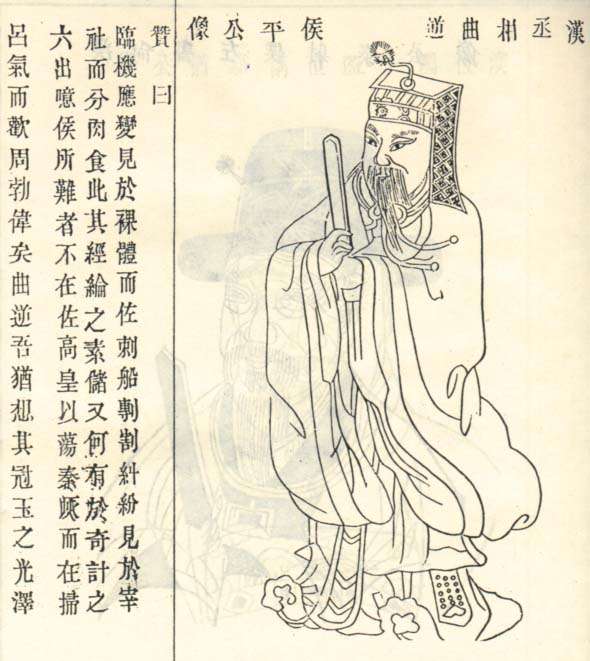
Image: Portrait of Chen Ping (Public domain)
Chen Ping was born in Yangwu, a region under the control of the state of Wei during the Warring States period.
His family was poor; his elder brother Chen Bo worked the fields, while Chen Ping devoted himself to study.
Upon reaching adulthood, Chen Ping set his sights on marriage. He aimed high—at the granddaughter of a wealthy matron named Madame Zhang.
This woman had married five times, but each of her husbands had died, leaving her shunned by other suitors.
Chen Ping hatched a plan. He began assisting at village funerals with exceptional enthusiasm.
Through these ceremonies, he gained Madame Zhang’s trust. One day, he intentionally returned home late. When Madame Zhang secretly followed him, she saw multiple cart tracks in front of his home.
This was meant to imply that Chen Ping was connected to men of high status who traveled in carriages.
It’s unlikely that a poor farmer’s second son had such elite acquaintances, and Madame Zhang may have seen through the ruse.
Still, she might have appreciated his intelligence and ambition.
In the end, Chen Ping succeeded—he married the wealthy woman’s granddaughter.
This early tale hints at the strategic genius Chen Ping would later become.
【Leaving Wei and Chu】
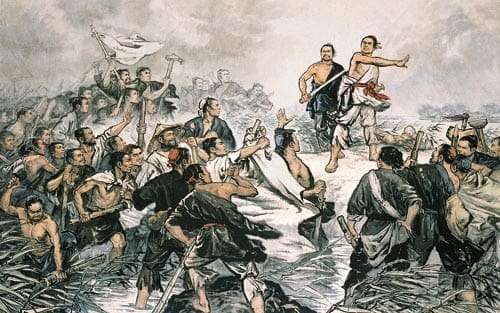
Image: Dazexiang Uprising (© Dazexiang Qiyi)
In 209 BCE, the Dazexiang Uprising led by Chen Sheng and Wu Guang sparked rebellions against the Qin regime throughout China.
Chen Ping joined the movement, taking refuge under Wei Jiu, a man who had been installed as King of Wei by the rebels.
Chen Ping was appointed to the key military role of Taipu (Overseer of the royal chariots and horses), but his counsel was never heeded.
Wei Jiu was a man of integrity—he would later offer his life to Qin general Zhang Han in exchange for the safety of his people, ultimately burning himself alive.
Perhaps Chen Ping’s scheming nature clashed with Wei Jiu’s moral idealism.
Smeared with slander, Chen Ping left Wei and entered the service of Xiang Yu.
But his troubles continued. When the city of Yin, which he had helped conquer, defected to Liu Bang, Xiang Yu held Chen Ping responsible and prepared to execute him.
Disillusioned, Chen Ping returned the gold and seals he had received from Xiang Yu and fled to Liu Bang’s camp.
Even then, danger awaited him. At a ferry crossing over the Yellow River, a boatman attempted to rob and kill him.
Sensing danger, Chen Ping stripped off his clothes and offered to help row, making it clear he had nothing of value.
The boatman, finding nothing to steal, spared his life.
【Questionable Morals】
Later, through an introduction by his old friend Wei Wuzhi, Chen Ping was granted an audience with Liu Bang.
A keen judge of character, Liu Bang was quickly captivated by Chen Ping’s eloquence and wit. He appointed him as a duwei (military inspector), allowed him to ride in his personal carriage, and entrusted him with commanding his guards—an exceptional honor for a newcomer.
Naturally, this provoked resentment.
Veteran generals like Zhou Bo and Guan Ying began to slander Chen Ping. They accused him of sleeping with his brother’s wife, betraying both Wei and Chu, and accepting bribes in return for influence.
Alarmed, Liu Bang summoned Wei Wuzhi to question him.
Wei replied,
“I recommended Chen Ping for his strategic brilliance. You speak of his conduct—but can we afford to care about that while at war with Chu?”
Liu Bang then summoned Chen Ping and asked,
“You served Wei and Chu, and now you serve me. Can a man of loyalty switch allegiances so easily?”
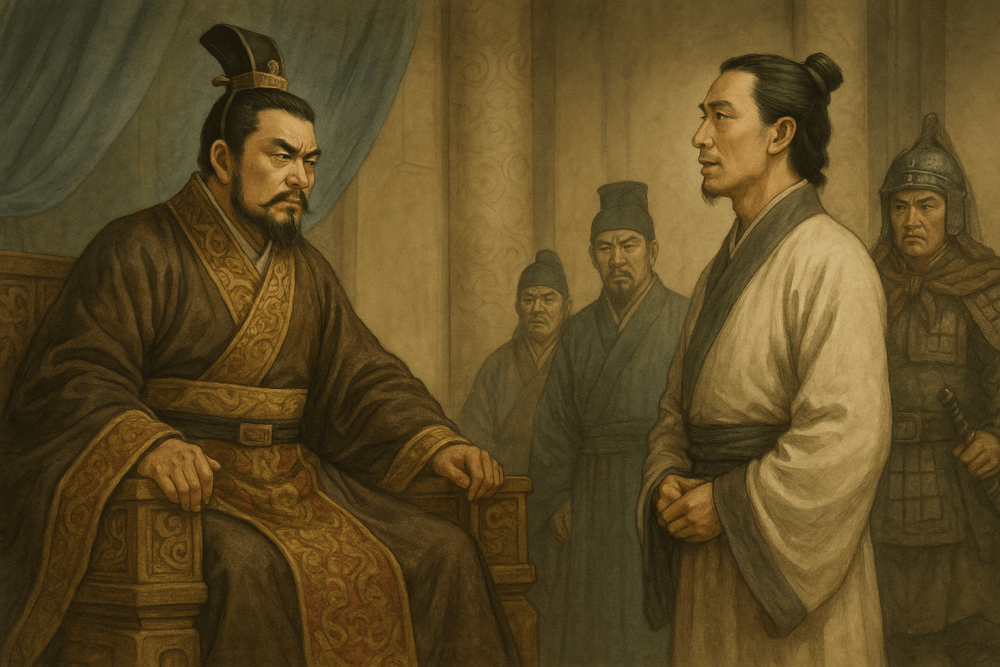
Image: Liu Bang and Chen Ping (Photo by the author)
Chen Ping responded without shame:
“I left Wei and Chu because my advice was never heeded. I came to serve you in hopes my strategies would be used. I had no funds, so I accepted bribes. If you have no use for me, I will return all the money and resign.”
Impressed by this bold honesty, Liu Bang rewarded Chen Ping with riches and promoted him to Commander of the Guards.
From that point on, no one dared to slander him again.
Liu Bang wasn’t concerned with Chen Ping’s morality—he wanted to know whether Chen Ping would remain loyal, and whether he was truly indispensable.
【The Strategy of Sowing Discord】
About a year into the Chu-Han war, Liu Bang was besieged by Xiang Yu’s forces in the fortress city of Xingyang.
Surrounded and cut off from supplies, the Han army teetered on the brink of collapse.
Liu Bang sued for peace, but Xiang Yu refused.
Just when all seemed lost, Chen Ping offered a bold plan.
“Xiang Yu is quick to believe slander,” he said. “If we plant doubts among his few trusted aides—Fan Zeng, Zhongli Mo, Long Ju, and Zhou Yin—the Chu army will collapse from within.”
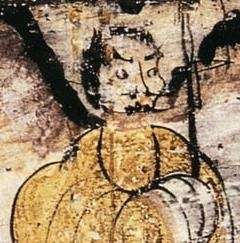
Image: Fan Zeng, strategist to Xiang Yu (Public domain)
Liu Bang approved the plan and entrusted Chen Ping with 40,000 jin of gold. Chen Ping scattered the gold generously and deployed a network of spies to spread false rumors inside the Chu camp.
Soon, Xiang Yu heard whispers that Zhongli Mo and others planned to defect to Han and claim kingships for themselves.
Disturbed, he sent an envoy to investigate.
Liu Bang greeted the envoy with extravagant feasts but turned cold when told the envoy came from Xiang Yu.
“I thought you were sent by Fan Zeng. But no—you were sent by the King himself?”
The message was reported back to Xiang Yu, who began to doubt Fan Zeng.
Heartbroken, Fan Zeng resigned and died on his way back to his homeland.
With Fan Zeng gone, Xiang Yu had lost one of his last trusted advisors.
Still, Xingyang remained under siege. Supplies dwindled. Escape seemed impossible.
Chen Ping proposed another scheme.
Arm 2,000 women in armor and send them through the eastern gate to confuse the enemy. Meanwhile, send a body double of Liu Bang to fake surrender. In the chaos, Liu Bang himself would escape through the western gate.
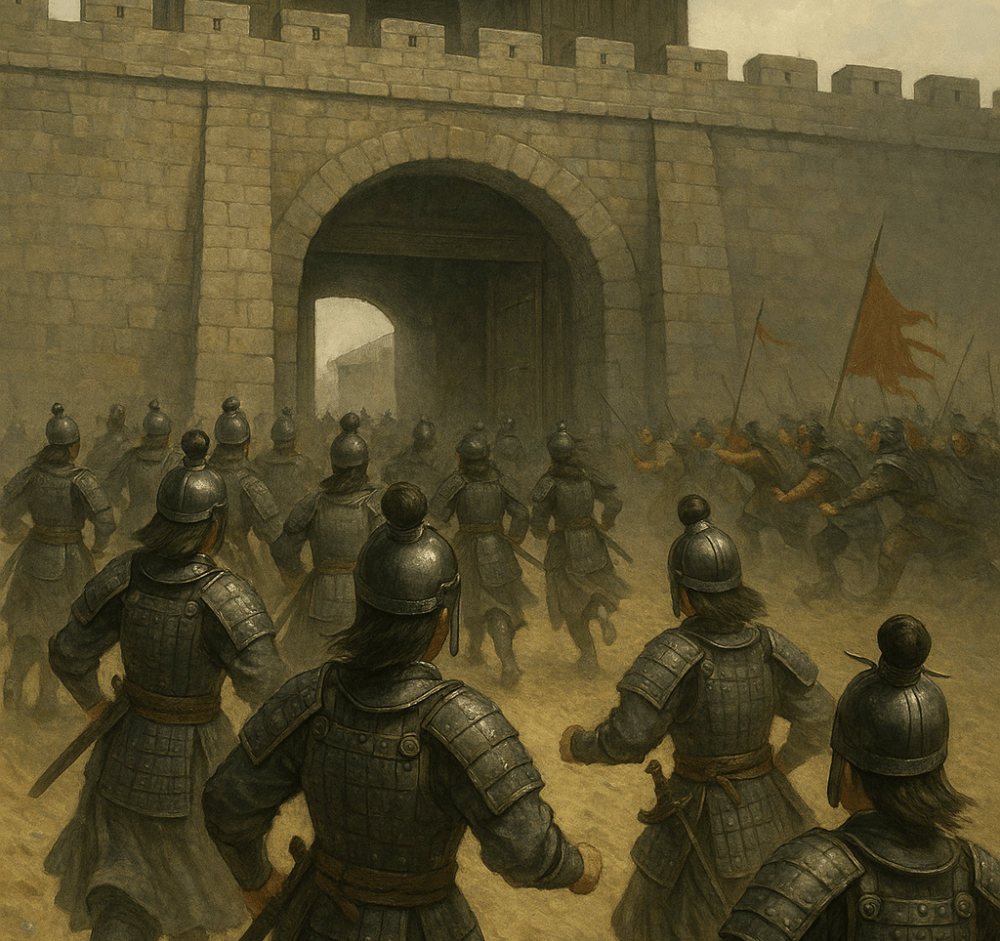
Image: Chen Ping’s decoy strategy (Photo by the author)
The plan worked flawlessly. Liu Bang escaped to the safety of Guanzhong.
However, the decoy, Ji Xin, was burned alive. The fate of the 2,000 women remains unknown—some may have been sold, others massacred by Chu forces.
There is no doubt about Chen Ping’s brilliance. But his plans often bore a grim, cold logic.
The Records of the Grand Historian note that some of his schemes were so secret that even Liu Bang didn’t know their details.
Many were likely too cruel to record.
The internal sabotage of Chu may have been even more ruthless than the sources suggest.
【The Capture of Han Xin】
After defeating Xiang Yu and founding the Han dynasty, Liu Bang still faced rebellions across China.
In 201 BCE, a report reached him that Han Xin—one of Han’s Three Heroes—was plotting treason.
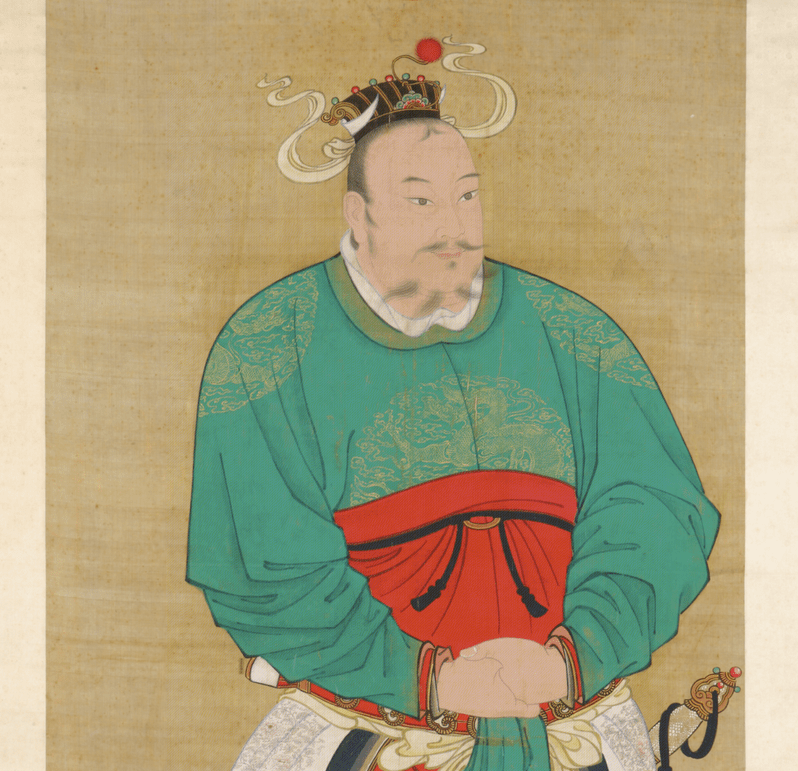
Image: Han Xin (Public domain)
In truth, Han Xin had merely sheltered his old friend Zhongli Mo. He had no intention of rebellion.
Still, Liu Bang had long viewed Han Xin as a threat. He summoned Chen Ping for advice.
“No general in your army can match Han Xin,” Chen Ping said. “If you confront him openly, you will lose.”
“Then what should I do?” Liu Bang asked.
“Summon the regional lords to Chen, on Chu’s western border. Han Xin will surely appear to greet you. Arrest him there.”
Once again, Chen Ping was right.
Han Xin was seized on the spot and demoted to Marquis of Huaiyin.
Years later, when he truly did plot rebellion, he was executed.
【The Annihilation of the Lü Clan】
In 190 BCE, Chancellor Cao Shen died. Wang Ling became Right Chancellor, and Chen Ping was appointed Left Chancellor.
By then, real power lay in the hands of Empress Lü Zhi, Liu Bang’s widow.
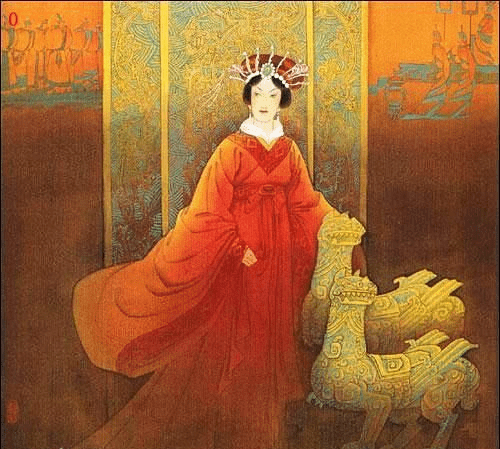
Image: Empress Lü Zhi, wife of Emperor Gaozu of Han (Public domain)
She sought to install her own family as kings across the realm.
Wang Ling strongly opposed this. Chen Ping, however, voiced no objection and supported her proposals.
Angered, Empress Lü demoted Wang Ling and promoted Chen Ping to Right Chancellor.
Chen Ping continued to rise in power. But he drew the ire of Lü Zhi’s younger sister, Lady Lü Xu.
Her husband, Fan Kuai, had once been accused of treason. At the time, it was Chen Ping who had been ordered to arrest him.
Lady Lü Xu often whispered to the Empress,
“Chen Ping is neglecting state affairs and drowning in wine and women.”
Learning of this, Chen Ping began to live exactly as described—feasting and drinking daily.
He pretended to be incompetent, seeking to avoid Lü clan suspicion.
His ruse worked. Lü Zhi let her guard down, and Chen Ping made no moves while her relatives gained titles.
Then, in 180 BCE, Empress Lü died.
Seeing his chance, Chen Ping allied with General Zhou Bo and launched a coup.
They eradicated the Lü clan and enthroned Liu Heng, one of Liu Bang’s sons, as Emperor Wen.
Chen Ping was then formally appointed Chancellor. He died in 178 BCE and received the posthumous title of Marquis Xian.
Before his death, Chen Ping once said:
“If my descendants are wiped out, they will never rise again. I’ve brought too many disasters upon the world through my schemes.”
His words proved prophetic.
In his great-grandson’s generation, a scandal led to the loss of their marquis title and lands.
Chen Ping, the brilliant mind who steered Han through chaos and earned an emperor’s trust, rose to the pinnacle of power.
But the legacy he left behind was clouded by resentment and ruin.
His family’s glory vanished quietly into the shadows of history.
References:
Sima Qian, Shiji, translated by Ogawa Tamaki, Ima Takashi, and Fukushima Yoshihiko, Iwanami Bunko
Satake Yasuhiko, Liu Bang and Xiang Yu, Chuo Koron Shinsha


